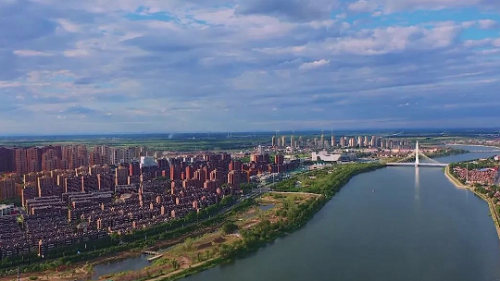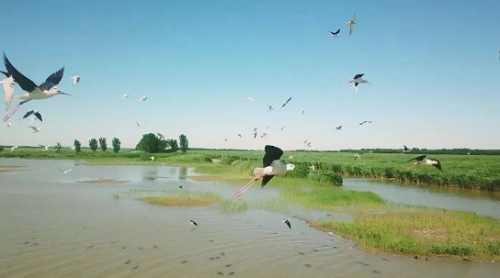On Nov 3, Ninghe held a press conference on the building of an ecological demonstration site and innovation base for implementing the development principal that "lucid waters and lush mountains are invaluable assets".

Ninghe district [Photo/WeChat account: Media Convergence of Ninghe district]
In recent years, Ninghe has focused on pollution control, insisting on promoting carbon reduction, pollution reduction, and green expansion. At present, Ninghe is focused on being the "Jingu rice warehouse and the paradise for foodies". By implementing the "small Qilihai" project, it has effectively activated the green resources of Qilihai wetlands, and created a model area for "lucid waters and lush mountains", an ecological value transformation demonstration area, and a common prosperity practice area.
The local government has also constructed tourism towns and leisure tourism villages in the Qilihai area and Zaojia town, to drive agricultural product consumption and increase farmers' incomes. Focusing on the Ji Canal, Lianzhuang town, Ninghe town and Miaozhuang town have planned and laid out key projects that integrate the development of agriculture, culture and tourism. In addition to building a 3.8km red tourism route, Ninghe has also established a red folk custom tour throughout the city, striving to create a national practice and innovation base of "lucid waters and lush mountains are invaluable assets".

Ninghe district [Photo/WeChat account: Media Convergence of Ninghe district]
Relying on the cultural landmark of the "Tianzun pavilion", Ninghe has promoted the overall planning of the tourism project that integrates "folk culture + traditional Chinese culture + health preservation" in Fengtai town.
With the integration and development of the six major agricultural, cultural and tourism industries, the ecological resources of Ninghe will become a new engine for gathering tourists and boost local consumption.





